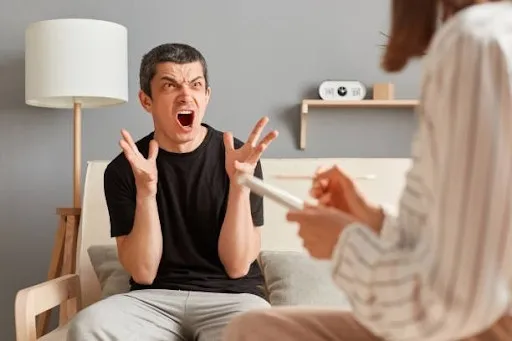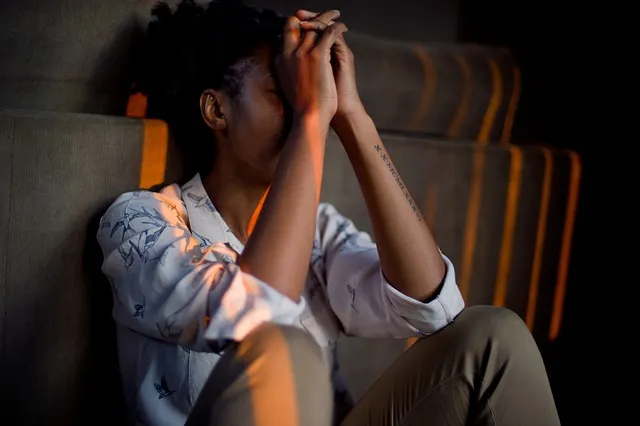One of the terrifying aspects of dealing with anxiety attacks is how they simulate very serious health problems, which can be fatal if left untreated. Thousands of people are hospitalized for severe or unexpected panic attacks because the physical effects are extremely similar to other serious conditions, even though the cause is mental health. A stroke is one such condition. But, Can anxiety cause a stroke? According to the findings of a recent study, people whose anxiety symptoms were in the highest third had a risk of stroke, which was 33 percent higher than those whose levels were the lowest. Anyone suffering from one of these attacks must learn to distinguish between anxiety and a stroke and how to avoid allowing your fear of stroke to increase the severity and frequency of your anxiety symptoms. For long-term anxiety, you can consult the best neurosurgeon in Mumbai.
Anxiety is not always Mental -
The most significant thing to recognize is that anxiety is more than just a mental issue. It also has an impact on how you feel. It can set off chain reactions that cause severe symptoms that you think you're having a stroke. The key point is that the signs may be similar, but you still need to consult a doctor. Only a doctor can diagnose you; nothing should be left to chance whenever it concerns your health. However, anxiety symptoms are very serious, and many of them evoke a stroke-like experience, for example:
- Difficulties in thinking or formulating ideas.
- Feeling as if limbs or muscles are immobilized.
- Dizziness or blurred vision
- Feeling faint.
- A sudden sense of impending doom.
These are "brain symptoms" that might result from a stroke. There are also "heart symptoms" that may make someone believe they are having a heart attack, such as chest pains and a rapid heartbeat. Heart attacks and strokes are very different, but in moments of sheer terror, they may appear to be the same.
Transient Ischemic Attack (Mini-stroke) and Anxiety
Strokes are life-threatening and sudden, with symptoms that necessitate immediate medical attention. In general, if you have a full-fledged stroke, there is no doubt about whether it is a stroke or anxiety. Strokes are deadly, unexpected dangers, though; you'll know if you have one. The concern is that you may have had a transient ischemic attack, also known as a "mini-stroke." These strokes happen instantly, last about an hour, and then disappear. They are frequently the precursors to a full-blown stroke, but they are less likely to result in significant disability. They could be confused with anxiety.
How does Anxiety Affect Stroke Risk?
The higher the anxiety level, the greater the stroke risk; however, even mild increases risen stroke risk. A stroke occurs when blood flow to the brain is full or partially blocked by a blood clot, clogged blood vessel, or bleeding in the brain. Brain cells die when the supply of oxygen-rich blood to the brain decreases. Cell death can cause paralysis, balance or memory problems, speech difficulties, and muscle weakness. Some of these issues can be resolved through therapy, while others may be long-lasting. Strokes can even be fatal if the brain damage is severe. Anxiety and chronic stress cause inflammation in the arteries and throughout the body. Inflammation-induced damage can eventually narrow or firm up the vessels, reducing blood flow to the brain.
What Is the Difference Between Anxiety and a Mini Stroke?
Only a doctor will tell you with certainty whether you've had stroke-like symptoms due to an anxiety attack or a real stroke. However, there are many ways to identify the difference in general, including: Rapid/Gradual Both panic attacks and strokes can happen quickly, but strokes are mostly instant, whereas panic attacks typically peak around 10 minutes in and gradually fade. The symptoms of a mini-stroke appear almost immediately. Any anxiety tends to follow. Furthermore, transient ischemic attacks usually take a shorter amount of time.
Symptoms of Anxiety
The loss of brain function characterizes strokes. Although they can lead to anxiety, they rarely occur with other anxiety symptoms. Unless you are experiencing other symptoms of anxiety, such as shaking, a rapid heartbeat, and others, especially if they occur well before stroke-like sensations, then anxiety is very likely. Paralysis It is something that anxiety rarely causes. Anxiety can make it difficult to move certain muscles, particularly if you are feeling weak and panicking, but it is not uncommon to be unable to move a muscle during a stroke. Anyway, not all strokes result in paralysis. History of the Family Strokes are uncommon in people under 55, those without a genetic history, and those who do not have elevated blood pressure or high blood cholesterol. That is why seeing a doctor is still beneficial, even if you are certain it is anxiety. You can see that the distinctions are minor. But they exist, and if you think about the attack logically, you'll always find that it's clear what happened. However, it is critical to first rule out a cerebral event (stroke or transient ischemic attack).
How to Avoid Health Anxiety Caused by Panic Attacks?
Once a stroke has already been ruled out, you'll need to manage your anxiety and the significant impact on the health that often occurs when someone has a panic attack that causes stroke-like symptoms. Those suffering from severe anxiety are typically concerned with a diagnosis of a panic attack. Because the signs are so similar and can share so much, it isn't easy to believe they're caused by something other than physical. There is a desire to believe that the worst-case possibility exists because if it were, something might be done about it. The best way to avoid developing severe health anxiety from your panic attacks is to address them regardless, even if you're not convinced that's the case. If you learn to manage your panic attacks and the techniques you try to work, you'll notice that the side effects causing you so much health anxiety begin to fade, leaving you feeling more at ease and comfortable in your health.
Although it is impossible to eliminate anxiety from your life,
the following steps may assist you in preventing it from taking over:
- Get enough exercise and rest.
- Prioritize healthy eating.
- Maintain contact with friends and family, even if only virtually for the time being.
- Share your concerns with a trusted family member, friend, or health professional.
- Every day, find something to make you smile or laugh.
- Invest more time in activities and hobbies that make you happy.
- Experiment with meditation, yoga, guided imagery, or deep breathing techniques.
- Consider seeing if you qualify for support animals, like ESAs or therapy dogs to help reduce anxiety symptoms.
- Make time for yourself every day, even if it's only for a few minutes.
- When you feel tense, take a few moments to step back and assess the situation.
- Allow yourself to say "no" to demands that increase stress.
- Don't cope with stress by drinking, smoking, or using drugs.
- If you feel stressed, make an appointment with a mental health counselor.
Conclusion -
As reported by the Centers for Disease Control and Prevention, 800,000 people have a stroke each year. Maintaining your anxiety and stress control may help you avoid being another stroke statistic. You can also consult the best neurosurgeon in Mumbai for any mental health-related issues and disorders.

Reviewed by







